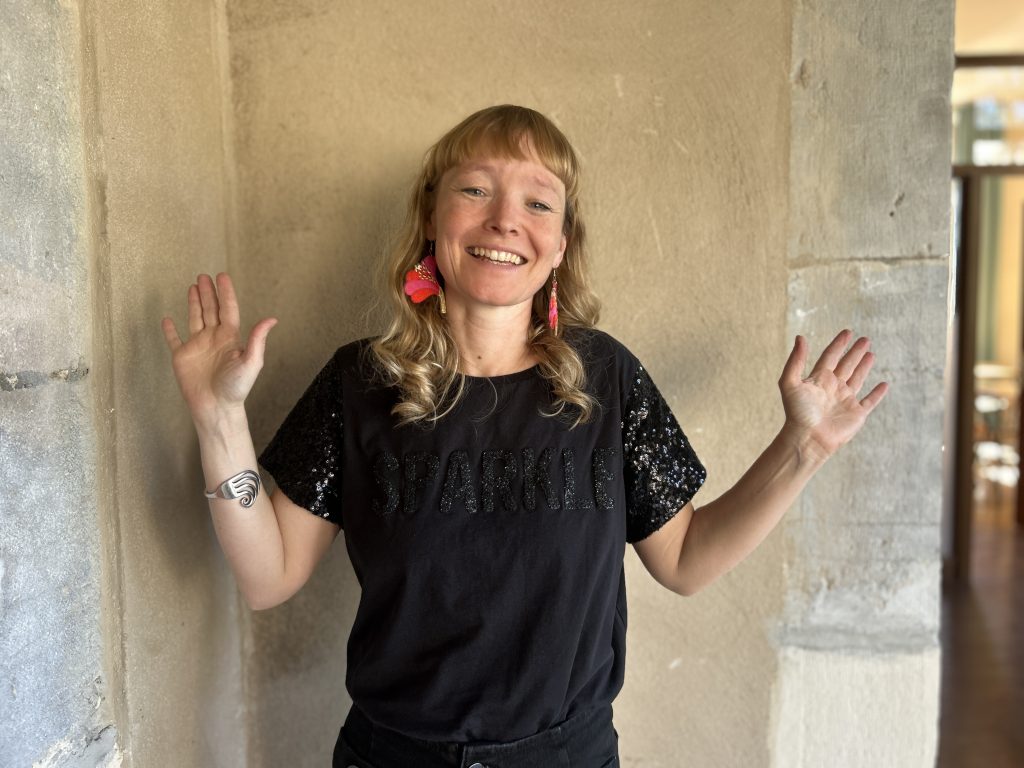Why cities need a capacity-building programme
SPARKLE's co-coordinator Anna Francis reveals how upskilling local authorities can boost the green transition
What’s capacity building? Why did a group of sustainability experts feel a free learning offer financed by the EU LIFE programme was needed?
We discuss this and the crucial role cities play in achieving the EU climate and energy targets with Anna Francis, Project Manager at Energy Cities and co-coordinator of SPARKLE.
Why did you decide to propose SPARKLE to the European Commission?
The effects of climate breakdown are increasingly visible: intensifying heatwaves, wildfires, droughts, floods, and glacial melt. Combined with the ongoing energy crisis and rising cost of living, the need for resilient and locally-driven Clean Energy Transition (CET) planning is more urgent than ever.
Cities have a pivotal role to play. Nearly 75% of Europeans live in urban areas, and globally, cities account for around 70% of greenhouse gas emissions. The updated EU climate and energy legislation—anchored in the European Green Deal, the European Climate Law, and the Fit for 55 package—place new responsibilities on municipalities, while also offering strategic opportunities to lead the clean energy transition whilst enhancing quality of life.
Yet for many small and medium-sized local authorities, challenges around capacity, governance, funding, and expertise hinder their ability to deliver ambitious climate plans. SPARKLE was proposed to help overcome these barriers. Through a comprehensive capacity-building programme—including a free online learning platform, thematic summer schools, and mentoring—SPARKLE supports municipalities in developing and implementing integrated CET strategies across five key areas: governance, fossil-free districts, community energy, sustainable food systems, and circular economies.
Enabling and accelerating positive change is something that I’m passionate about, which is why I’m excited to be co-coordinating this important project. It has a great name too 😉.

Why do cities need a capacity-building programme? What’s your experience?
Having worked for and with municipalities across the UK and Europe, I’ve seen first-hand how tailored training, peer-to-peer exchange and mentorship can unlock bold local climate action. Importantly, cities are not starting from scratch—they already hold significant knowledge and experience. SPARKLE builds on this foundation, connecting local authorities to shared learning opportunities that will help accelerate the implementation of their Sustainable Energy and Climate Action Plans (SECAPs).
We have already found, for example, that 80% of municipalities taking part in Energy Cities’ on-line community energy ‘Espresso’ training programme have been inspired to integrate community participation into tenders, 25% plan to set up One Stop Shops, and 75% plan to provide financial support for community energy projects.
SPARKLE’s capacity-building approach is grounded in integrative, cross-sectoral planning. SPARKLE’s tailored learning programme—launching in June 2025—offers both a “common track” on climate and energy planning and specialised tracks aligned with cities’ specific interests, structured around the five thematic pillars. It’s a flexible, adaptive model designed to meet cities where they are.
What’s the added value of SPARKLE?
SPARKLE stands out for its holistic, cross-sectoral and collaborative approach to learning and local climate planning. The first part of the project focused on assessing the city’s capacity gaps, skills and learning needs. This has informed SPARKLE’s learning offer, which will be further refined through collaboration with SPARKLE’s five focus cities. The learning pillars provide municipalities with a coherent structure for tackling complex, interconnected challenges—from governance to sustainable food systems. Beyond the online platform, SPARKLE’s five in-person summer/winter schools will offer immersive learning experiences, enabling cities to dive deeply into these themes, share best practices, and co-develop solutions tailored to their contexts.
What will SPARKLE offer?
SPARKLE offers a comprehensive package of support to local governments across Europe via a:
- Free online learning programme tailored to local authorities’ specific needs and priorities and hosted on the Local Transitions Learning Centre
- A scholarship programme covering travel and participation in five thematic summer schools:
- Fossil Fuel-Free Districts – November 2025, Vilnius, Lithuania
- Community Energy – March 2026, Porec-Parenzo, Croatia
- Governance for Transition – April 2026, Guimarães, Portugal
- Circular economies – May 2026, Calenzano, Italy
- Sustainable food – June 2026, Albertville, France
- Expert mentoring to guide cities in implementing and financing their CET plans.
- The European City Calculator, an automated modelling platform that uses SECAP data to generate local transition scenarios to help cities and citizens visualise possible pathways.
What are your expectations?
We expect SPARKLE to become a transformative force in Europe’s local climate governance landscape. By supporting hundreds of municipalities in deepening their knowledge, sharing solutions, and translating plans into action, SPARKLE aims to accelerate the delivery of Europe’s climate targets from the ground up. We want to build a strong, interconnected network of cities equipped with the tools, confidence, and political momentum to lead the clean energy transition—because that’s where real change happens.
Curious to learn more about the upcoming training and schools? Stay in touch!
In the meantime, enrol in the EUCityCalc learning programme and start designing your city’s transition pathway!

